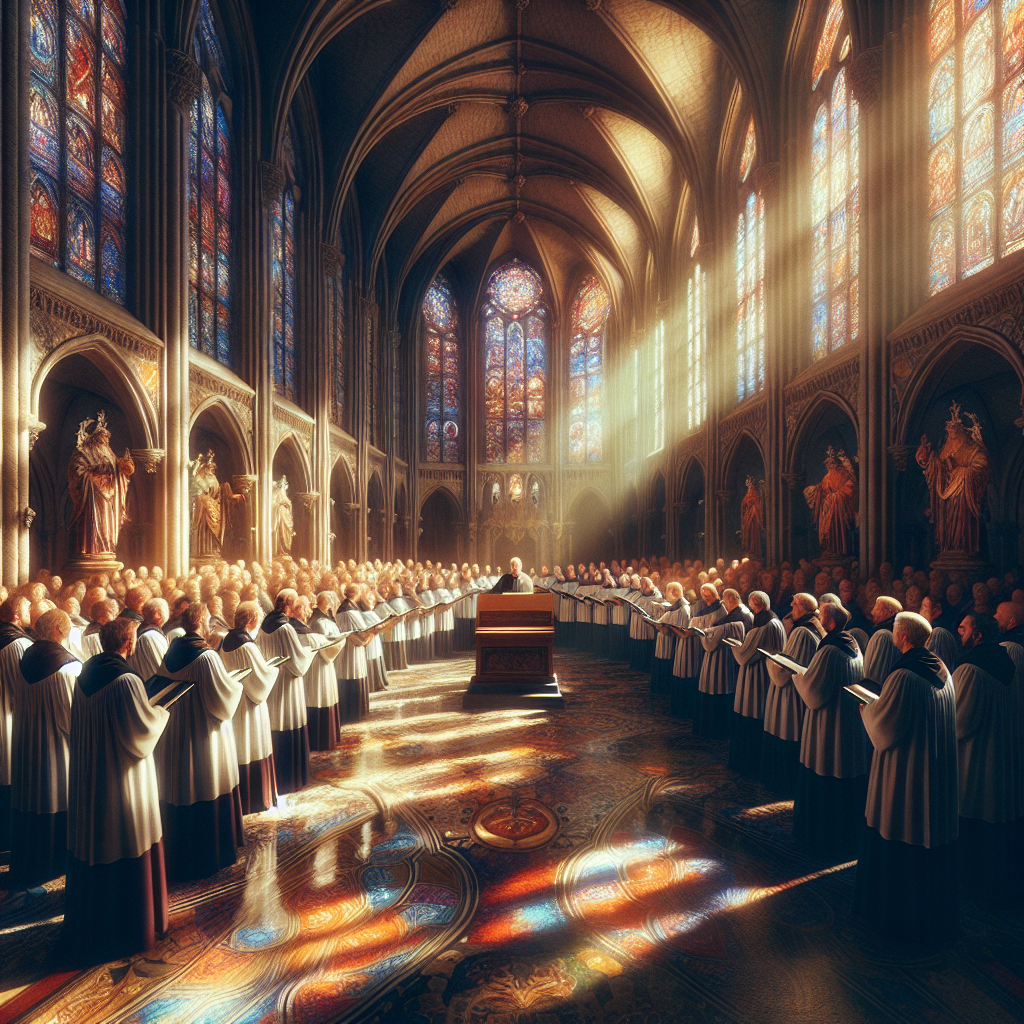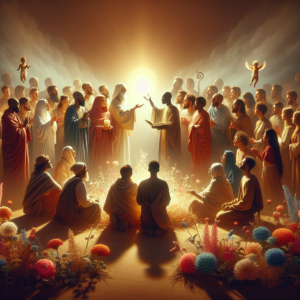Spiritual Devotional about Sacred Music
Harmonies of Heaven: The Power of Sacred Music
Hello, dear friends! 🎶
Today, let’s embark on a melodious journey exploring the transformative power of Sacred Music. This divine art form has the ability to touch our souls, lift our spirits, and draw us closer to God’s loving presence.
Throughout the Bible, music plays an essential role in worship and celebration. King David, the sweet psalmist of Israel, beautifully expressed the importance of music in Psalm 95:1: "Come, let us sing for joy to the Lord; let us shout aloud to the Rock of our salvation." Music has always been a conduit for expressing our deepest joys, hopes, and gratitude to God.
Sacred Music as Prayer
Sacred music is often described as "prayer set to song." It opens a gateway to the divine, enveloping us in peace and reverence. When we sing hymns or listen to spiritual songs, we are not merely enjoying a melody—we are participating in a form of prayer that resonates deep within our souls. As Saint Augustine famously said, "He who sings prays twice."
A Symphony of Unity
Music has a unique ability to unite us, transcending languages and cultures. In Ephesians 5:19, Paul encourages us to speak to one another with psalms, hymns, and spiritual songs. Through sacred music, we find common ground with our brothers and sisters in Christ, our hearts beating in unison with the rhythm of His love.
Inspiration for the Soul
There is a certain sacredness in music that inspires and uplifts us, reminding us of God’s promises and faithfulness. Whether it’s the powerful strains of Handel’s "Messiah," the simplicity of a spiritual hymn, or the rich harmonies of a gospel choir, sacred music invites us to feel the joy and peace of the Holy Spirit. It encourages us to live with faith, hope, and love.
Creating Your Own Melody
Why not make sacred music a part of your daily routine? Whether it’s starting your morning with a favorite hymn, joining a choir, or simply meditating on the lyrics of a worship song, let the music move your heart closer to God. Remember, your life is a unique symphony composed by the Creator Himself, full of beauty and potential.
As we infuse our lives with the gift of sacred music, may we be inspired to live harmoniously with each other and with God. Let the music of our hearts reflect His grace and love.
Keep singing His praises, friends!
In harmony and faith,
[Your Name]
Explore and dig up answers yourself with our BGodInspired App. Be careful – each interaction is like a new treasure hunt… you can get lost for hours 🙂
Q&A about Sacred Music
Q: What is sacred music?
A: Sacred music is composed for religious purposes, often used in worship or spiritual settings. It includes chants, hymns, and other musical forms meant to uplift and inspire faith.
Q: What are some common forms of sacred music?
A: Some common forms include Gregorian chant, hymns, psalms, gospel music, and choral works like masses and oratorios.
Q: What role does sacred music play in religious ceremonies?
A: Sacred music enhances the spiritual atmosphere, aids in worship, communicates religious themes, and helps congregations participate in communal prayer and reflection.
Q: How does sacred music differ between religions?
A: Each religion has its own musical traditions reflecting its beliefs and cultural heritage. For example, Christian services might feature hymns and organ music, while Islamic services use vocal chants like the Adhan and Nasheed.
Q: Can sacred music be performed outside of religious contexts?
A: Yes, sacred music is often performed in concert settings, appreciated for its artistic and historical value. Many classical composers created sacred works that are now part of the secular concert repertoire.
Q: Who are some famous composers of sacred music?
A: Notable composers include Johann Sebastian Bach, Wolfgang Amadeus Mozart, George Frideric Handel, and Hildegard of Bingen.
Q: What is the significance of Gregorian chant in sacred music?
A: Gregorian chant is one of the oldest forms of sacred music in the Christian tradition, characterized by monophonic, unaccompanied vocal music. It played a crucial role in the development of Western music.
Q: How does sacred music contribute to spiritual experiences?
A: Sacred music can evoke deep emotional responses, facilitate meditation, and create a sense of connection to the divine, enhancing the overall spiritual experience.
Q: What are some modern developments in sacred music?
A: Modern sacred music may incorporate contemporary styles and instruments, reflecting diverse cultural influences and often aimed at engaging younger audiences in spiritual and worship settings.


